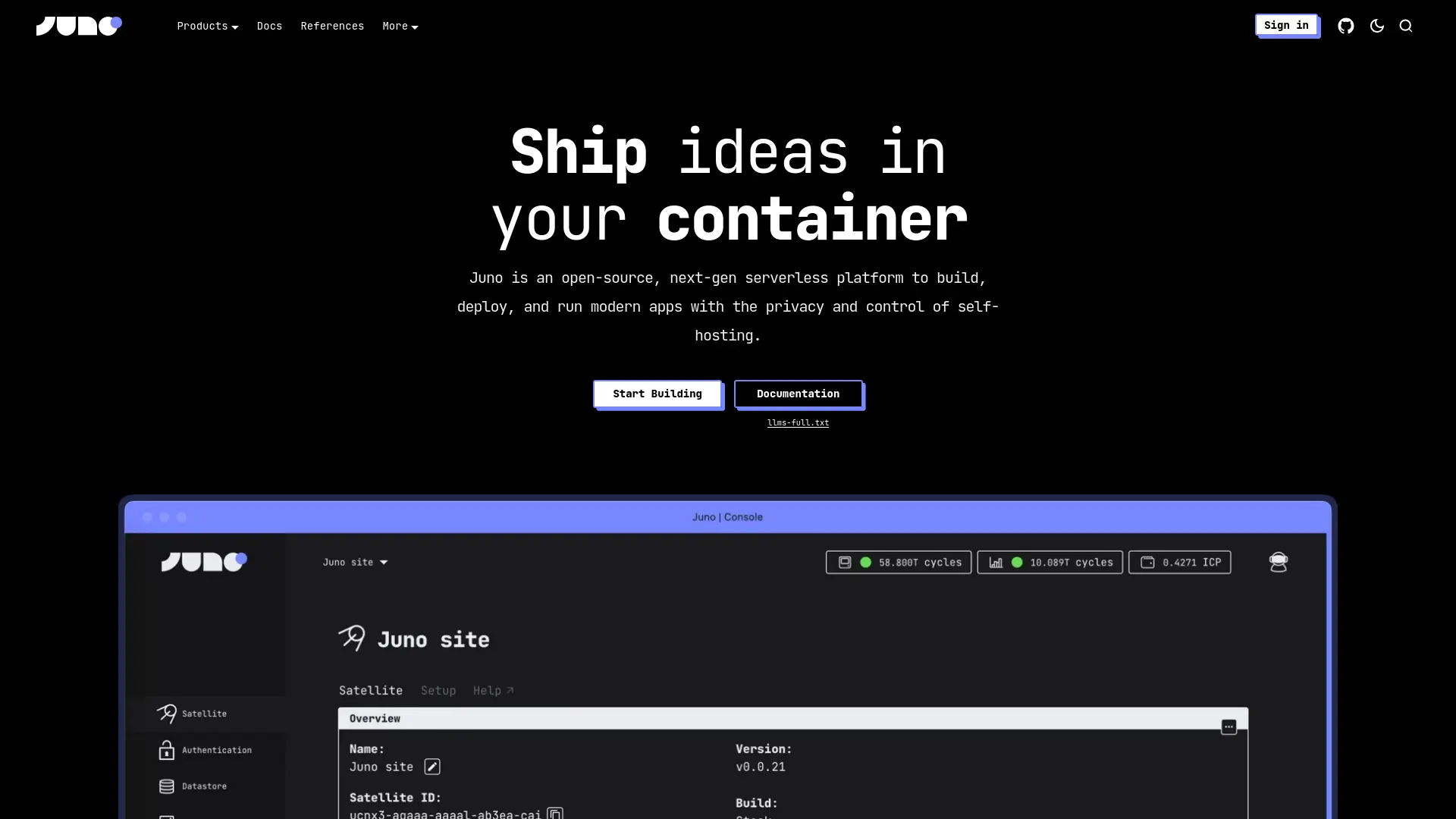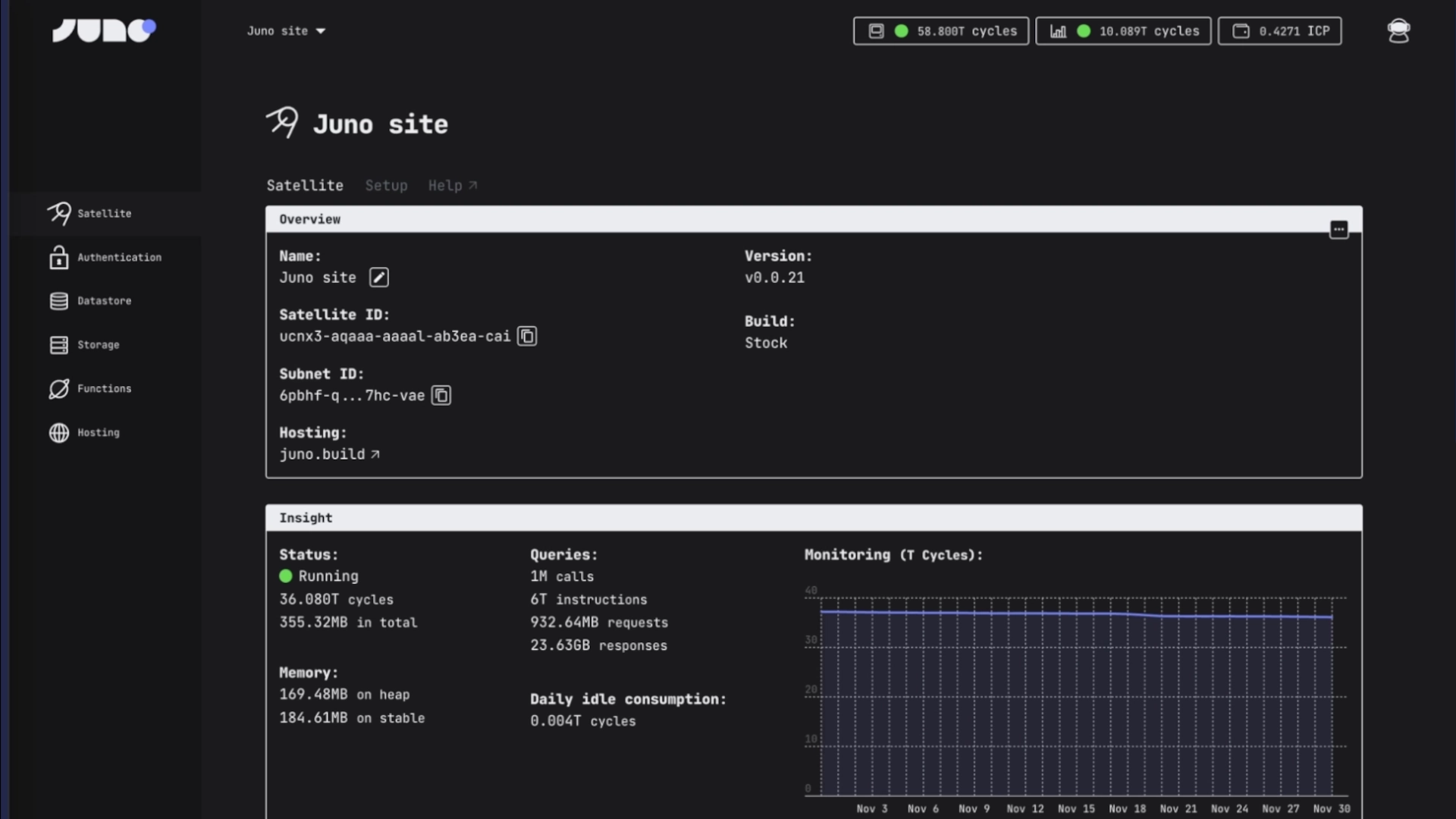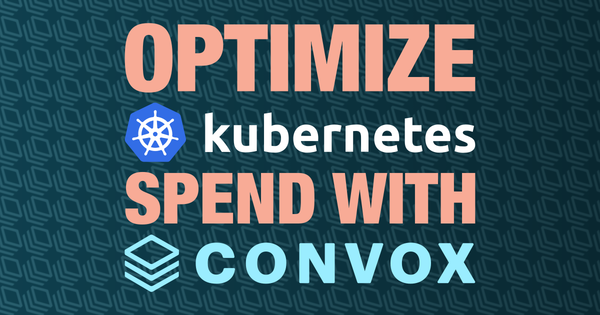
Juno Pricing, Features & Alternatives
Open Source Decentralized DApps Backend
Juno Overview
Juno Information Resource Links

What is Juno?
Juno is an open-source Blockchain-as-a-Service platform that aims to make building decentralized apps (dApps) faster and easier than ever before.
Unlike traditional Backend-as-a-Service (BaaS) platforms like Google Firebase or AWS Amplify, Juno runs entirely on the blockchain using the Internet Computer network.
It allows developers to outsource backend logic, authentication, and data storage while maintaining full data ownership and decentralization.
Use Cases
Authentication: Decentralized user login and identity management
Data Storage: Store and query user or app data on-chain
Smart Contracts: Build and interact with contracts through simple APIs
Payments: Integrate token-based payments or crypto transactions
Web & Mobile dApps: Quickly launch frontend-driven decentralized applications
Key Features
Decentralized Backend: Fully on-chain backend replacing traditional servers
API Access: Simple REST and GraphQL interfaces for smart contracts
Identity & Auth: Wallet-based login and permission management
Data Models: Declarative schema definition with automatic deployment
Our Take on Juno.build
We didn’t know you could build an app that runs and stores data entirely on a blockchain until we came across Juno. Backend, frontend, middleware - it’s all there on-chain. Serverless was already an abstraction, this takes it one step further. A Juno app runs on the Internet Computer, so there’s no cloud service or database to spin up. It’s all static builds, SSG instead of SSR (for now), tied into your favorite frontend frameworks.
The question is, can this really scale? How fast is it? What does development feel like once you’re in? We don’t know yet, but it’s hard not to be curious. The first hurdle we noticed is the setup - you’ll need to sign in using Internet Identity and a security key.
Internet Identity, you say?
No, Internet Identity isn’t some new government-issued digital ID system. It’s is passwordless login like OAuth or Google SSO, but decentralized. Internet Identity 2.0 even adds Google login alongside passkeys. It uses your device’s secure hardware or a key like a YubiKey for authentication. Will it really create a future where sign-in is safer and simpler, or is it just SSO with extra steps?
Juno Features
Category
Supported Runtimes
Supported Frameworks
Regional Availability

Juno Pricing
Free Trial Quota
Resource Pricing
Module creation
per new module or satellite
$2.80
Storage
per GB per year (≈ 0.8 ICP)
$5.35
Deployment
per 40 MB deploy (≈ 0.0105 ICP)
$0.07
Persisting data writes
per ~900 B JSON write (≈ 0.00017 ICP)
$0.001
Query / read operations
per query
Free
*Information is subject to change. Please consult the official Juno website for more details.






